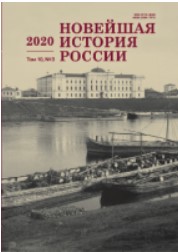К вопросу об использовании немецкой разведкой гражданского населения СССР в 1941–1944 годах
On the Question of Using the Civilian Population of the USSR by German Intelligence in 1941–1944
Author(s): Elena E. Krasnozhenova, Svyatoslav Valentinovich KulinokSubject(s): Civil Society, Military history, Security and defense, History of Education, WW II and following years (1940 - 1949)
Published by: Издательство Исторического факультета СПбГУ
Keywords: Great Patriotic war; recruitment; Germany; occupation; partisan movement; intelligence school; USSR;
Summary/Abstract: During 1941–1944 the German occupation and intelligence services created an extensive network of training centers (schools and courses) in the occupied territories of the USSR. Mostly Soviet prisoners of war were involved in reconnaissance and sabotage work, although a significant number of agents were recruited from the civilian (non-military) population. First, people who were in active or passive opposition to the Soviet regime were attracted: former emigrants, those repressed or dispossessed, ideological opponents, criminals, and others. At the same time, a significant number of agents were recruited from the civilian population who remained in the occupied territories, especially from its most vulnerable categories (women and children). The recruited agents were used to carry out reconnaissance and sabotage missions, both in the rear of the USSR and in parts of the Red Army, and against the resistance movement. On the territory of the BSSR occupied by the Germans, sixteen training centers were opened where saboteur children were trained, and more than twenty were opened to train “agents in skirts”. Similar schools and courses were opened in Russia, Ukraine, and the Baltic states. The Soviet secret services and partisan counterintelligence bodies were well informed about such work of the German secret organs. The performance of agents trained from among the civilian population was low. There were some tactical successes and actions by enemy agents (especially on the eve and during the period of punitive operations), but strategically this work by the Germans actually failed.
Journal: Новейшая история России
- Issue Year: 10/2020
- Issue No: 32
- Page Range: 609-621
- Page Count: 13
- Language: Russian

